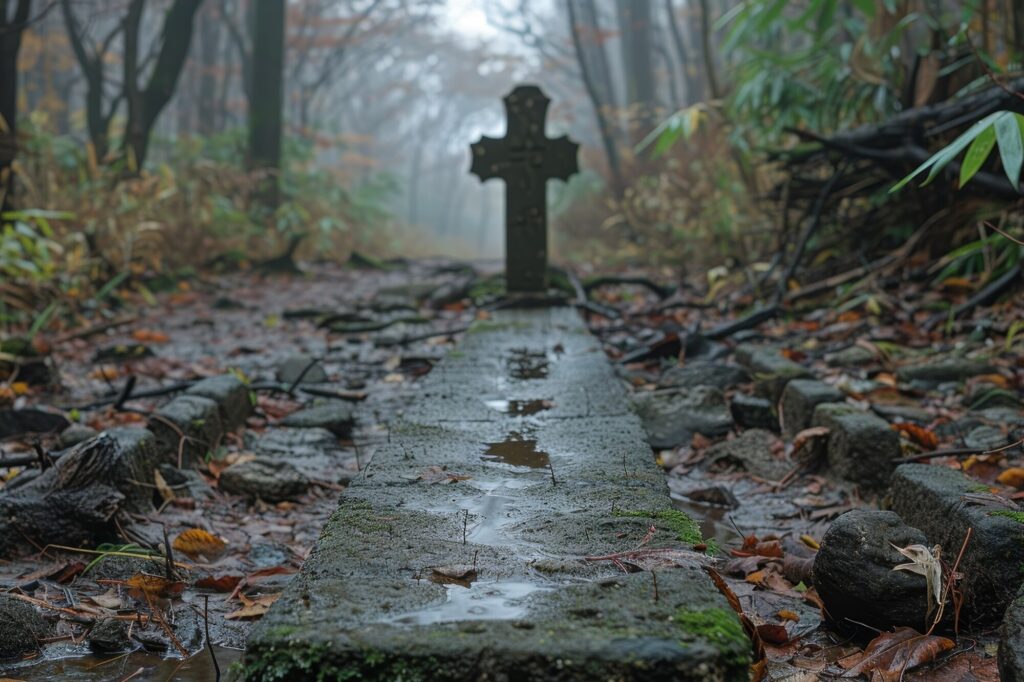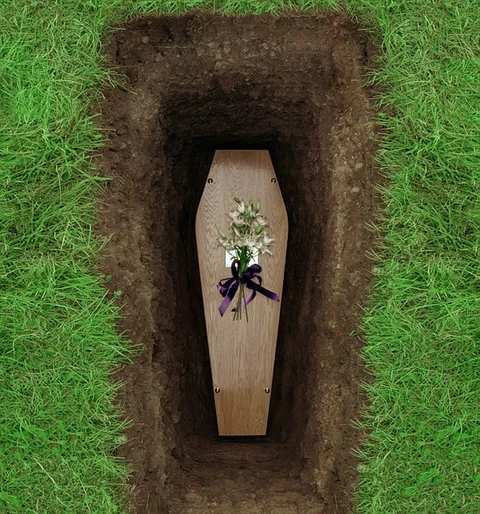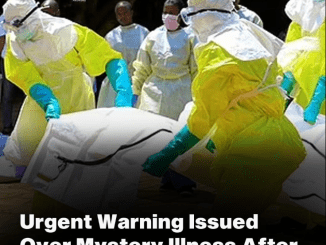Imagine the terror of being buried alive, with nothing but darkness surrounding you and the horrifying realization that you’re trapped beneath the earth. For one Brazilian woman, this nightmare became a reality. In 2018, Rosangela Almeida dos Santos was mistakenly buried alive, leading to an 11-day ordeal that has haunted the imaginations of many. This article delves into the harrowing details of her struggle, the tragic discovery, and the chilling aftermath that left a community in shock.

On February 9, 2018, 37-year-old Rosangela Almeida dos Santos was buried in the Senhora Santana cemetery in Riachao das Neves, Brazil. Dos Santos had been pronounced dead just a day earlier after suffering two cardiac arrests, according to her death certificate. But as it would later emerge, the reality was far more horrifying.
In the days following her burial, neighbors who lived near the cemetery reported hearing disturbing noises coming from her tomb. They described hearing faint screams and the sound of hammering, as if someone were desperately trying to escape. At first, these eerie sounds were dismissed as pranks or the overactive imaginations of children, but as the days went on, the noises persisted.
Finally, unable to ignore the unsettling sounds any longer, locals took action. Eleven days after Dos Santos had been buried, her coffin was exhumed. The scene that greeted them was nothing short of a nightmare. Dos Santos’s body had shifted inside the coffin, and there were clear signs of a struggle. Bloodstains, scratches, and even nails that had been forced upward from within painted a horrifying picture of her final moments.
The tragic evidence didn’t end there. Dos Santos had injuries on her wrists and forehead, likely sustained as she frantically tried to escape her wooden prison. The cotton wool that had been placed in her nostrils and ears had come out, a sign that she had been alive and fighting for her life after being buried. The most chilling detail, perhaps, was the fact that her body was still warm when the coffin was opened—a heartbreaking indication that she had only recently passed away.
Before her death, Dos Santos had been hospitalized for severe exhaustion and had a long history of health issues, including convulsions for which she was taking medication. Despite these challenges, her death was attributed to septic shock following cardiac arrests. However, her family remains convinced that she was mistakenly declared dead after spending only a week in the hospital.

The discovery of Rosangela Almeida dos Santos’s struggle has left her family devastated and seeking answers. They reported the incident to the police, questioning the medical practices that led to her premature burial. The thought that their loved one may have been alive and suffering for days beneath the ground is a torment that no family should have to endure.
The story of Dos Santos’s tragic ordeal quickly spread, drawing both local and international attention. The small community near the Senhora Santana cemetery was left in a state of shock and disbelief. Residents who had initially dismissed the sounds as jokes were now haunted by the possibility that they had ignored cries for help from beyond the grave.
This incident has raised serious questions about medical procedures and the handling of the deceased. How could such a catastrophic mistake happen? In cases where death is declared, especially under unclear circumstances, the protocols need to be stringent to prevent such a tragedy from recurring. The terrifying thought of being buried alive, once thought to be the stuff of horror stories, has now become a grim reality.

In Brazil and around the world, the story of Dos Santos has resonated deeply. The fear of being buried alive is an age-old phobia that has found its way into countless myths, legends, and horror films. This real-life incident has reignited those fears, leading many to question the infallibility of medical and burial practices.
One aspect of this story that stands out is the role of the community in uncovering the truth. It was the vigilance of Dos Santos’s neighbors, who refused to ignore the strange noises, that led to the exhumation of her body. Their actions, though ultimately too late, were crucial in bringing this tragedy to light and preventing it from being buried—literally and figuratively.
In the wake of this incident, there have been calls for better verification processes before declaring someone dead. While the chances of such a mistake happening are incredibly rare, the consequences are so severe that even a single case is too many. This tragedy serves as a stark reminder of the importance of thorough medical examinations and the need for caution in the handling of the deceased.
For the family of Rosangela Almeida dos Santos, the emotional toll of this tragedy is immeasurable. The knowledge that their loved one may have suffered such a fate is a burden they will carry for the rest of their lives. Their grief is compounded by the questions that remain unanswered—questions that may never fully be resolved.
The story of Rosangela Almeida dos Santos is a haunting reminder of the fragility of life and the horrors that can arise from simple mistakes. It’s a tale that underscores the importance of diligence in medical practices and the need for vigilance in all aspects of life. While we can’t change the past, we can learn from it to prevent such tragedies in the future.
The tragic case of Rosangela Almeida dos Santos serves as a stark reminder of the unforeseen horrors that can emerge from human error. It also highlights the importance of community vigilance and the need for stringent medical protocols. As we reflect on this heart-wrenching story, we are reminded of the delicate balance between life and death and the importance of ensuring that such a nightmare never happens again.


